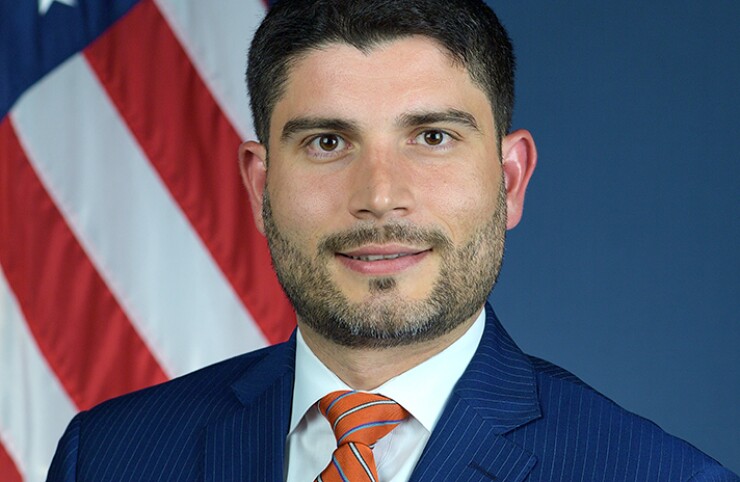The Biden administration's Build America Bureau expects to close on $19.5 billion worth of transportation infrastructure projects in the next 18 months, executive director Morteza Farajian said Tuesday at the American Association of State Highway and Transportation Officials annual meeting in Indianapolis.
"There's a huge increase in the number of projects that we have in the pipeline right now," Farajian said. "We're trying to diversify our programs to cover every single asset class," including airports, transit-oriented development and ports.

Part of the U.S. Department of Transportation, the Build America Bureau supports transportation development with a variety of financing structures, including public-private partnerships and private activity bonds.
Highway-related projects have traditionally made up most of the bureau's financing, but now projects range from airports to transit-oriented development to ports and rail, said Farajian, who used to run the Virginia DOT's P3 office. Maintaining a strong pipeline is one of the bureau's goals.
The $19.5 billion worth of projects already have letters of intent and most are set to close in 2024, he said. The bureau is working on another $45 billion worth of projects that are on track to close in the next 24 to 36 months, he added.
Those more preliminary deals include three large projects in California, Austin, Texas and Kansas City, Missouri. The bureau is working for the sponsors to submit letters of interest, Farajian said. "You could add those and the pipeline would be much bigger," he said.
The bureau is also close to releasing guidance on its Innovative Finance and Asset Concession grant program, which totals $100 million over five years. The program is aimed at helping states and cities create an inventory of their assets and consider P3s, including asset concessions, he said.
Farajian encouraged state officials to consider TIFIA programs, which he said could save up 20% to 40% over traditional municipal bond financing. The savings come from attractive provisions like the ability to go out 75 years, draw down costs like a letter of credit, and the lack of a prepayment penalty.
Issuers can now borrow up to 49% of costs for transit or transit-oriented development projects under a new provision announced last year. The program has two projects in the credit stage right now and another "nine or 10" in the pipeline, Farajian said.





